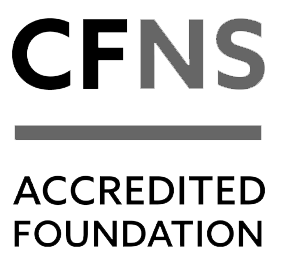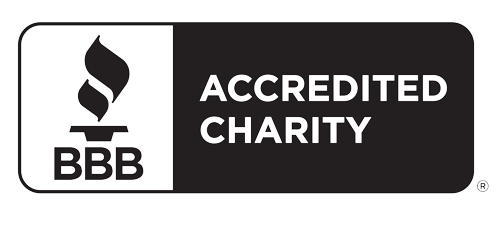It’s almost tax season, which means that many accountants, attorneys, and financial advisors are gearing up for a period of high-touch interaction with their clients.
The team at the NoCo Foundation is your resource for philanthropy – from tax deductibility, advantages of non-cash gifts, and advising on complex charitable giving options.
Below are our updates to help you advise your clients’ charitable giving through 2024:
1. Top 3 tax-time charitable giving questions: Charitable advising during the tax season.
2. Tax law twists and turns: Five developments impacting charitable giving.
We appreciate your partnership. Thank you for the role you play in promoting local philanthropy.

FAQs: A Snapshot of Tax-Time Charitable Giving Questions
It’s time to start gathering tax documents and related paperwork for 2023 tax returns and 2024 planning. Now is a great time to review a few basic tax principles related to charitable giving. Here are three questions that are top of mind for many advisors, along with answers that might help you serve your clients.
1. How important is it to high net-worth clients to get a tax deduction for gifts to charity?
Among clients who own investments of $5 million or more, 91% reported charitable giving as a component of their estate and financial plans. In another study, most affluent investors cited reasons for giving beyond the benefit of a tax deduction and would not automatically reduce their giving if the charitable income tax deduction went away. This means it’s important to be aware of your clients’ non-tax motivations for giving, such as personal experiences, compassion for particular causes, family traditions, and involvement with specific charitable organizations. This also means it’s critical to talk about charitable giving with all your clients because it’s likely something they consider important.
2. Why do clients so often default to giving cash?
Many clients simply are not aware of the tax benefits of giving highly-appreciated assets to their donor-advised or other type of fund. Those who are aware, but in a hurry, end up writing checks or making donations with their credit cards. It’s essential for advisors to remind clients about the benefits of donating non-cash assets such as highly-appreciated stock, or even complex assets (e.g., closely-held business interests and real estate). When clients give highly-appreciated assets in lieu of cash, they often can significantly reduce capital gains tax exposure, and they can calculate the deduction based on the full fair market value of the gifted assets.
3. What are the basic deductibility rules for gifts to charities?
It’s important to know that the deductibility rules are different for your clients’ gifts to a public charity (such as a fund at The NoCo Foundation) on the one hand, and their gifts to a private foundation on the other hand. Clients’ gifts to public charities are deductible up to 50% of AGI, versus 30% for gifts to private foundations. In addition, gifts to public charities of non-marketable assets such as real estate and closely-held stock typically are deductible at fair market value, while the same assets given to a private foundation are deductible at the client’s cost basis. This difference can be enormous in terms of dollars, so make sure you let your clients know about this if they are planning major gifts to charities.
So, what’s the first step? Reach out to the team at The NoCo Foundation! We really mean it. Make it a habit to mention charitable giving to your clients. From that moment on, whatever the clients’ charitable priorities, consider our team to be your behind-the-scenes back office and support department to handle all of your clients’ charitable giving needs.

Tax Law Twists and Turns: Five Developments Impacting Charitable Giving
We know charitable giving topics may not always be at the top of your reading list. That’s why we’re here! Here’s a recap of five recent developments worth keeping an eye on in 2024.
1. NIL Collectives
The IRS has had a lot to say lately about NIL collectives. In addition to offering insights for athlete recipients of NIL (name, image, and likeness) dollars, the IRS has also issued guidance pertaining to organizations that help develop NIL opportunities for athletes, suggesting that the activities of these entities, known as “collectives,” may not qualify as “charitable.” This development could be problematic for your clients who believe that their contributions to NIL collectives will qualify for a charitable tax deduction.
2. Donations of Cryptocurrency
It’s still a thing! At least a few of your clients are likely still invested in cryptocurrency, despite the whirlwind in that industry over the last year or so. You should know that in early 2023, the IRS published guidance confirming that a taxpayer cannot take a charitable deduction for a gift of cryptocurrency over $5,000 without submitting a qualified appraisal. Cryptocurrency, in the eyes of the IRS, is treated as property, not cash. And it is not a security, either. Note that the IRS also said that a price quotation from a cryptocurrency exchange (such as FTX!!) doesn’t count; a qualified appraisal is still required.
3. Charitable Act
Senate Bill 566, which is still pending, was introduced in early 2023 to address what is sometimes called the “universal charitable deduction,” meaning that even taxpayers who do not itemize their deductions would be able to claim a charitable deduction, potentially in an amount up to one-third of the taxpayer’s standard deduction. Keep an eye on this; the bill enjoys broad support and, if it becomes law, could be a real perk for both your clients and the charities they care about.
4. Exempt Purpose
It seems that at least once a year, the IRS issues guidance on what it means for an organization to be organized for an exempt purpose under Section 501(c)(3). In Private Letter Ruling 202349014, we are once again reminded that personal activities that have no direct public benefit simply will not be viewed by the IRS as exempt. While private letter rulings are, of course, not binding, they are nevertheless useful tools to provide to a client to show specific examples of what the IRS considers to be non-exempt. Estate planning attorneys and CPAs tell us that every few months, a client comes to them with an idea for starting a nonprofit, and it’s easier to tell a cautionary tale than it is to recite Internal Revenue Code sections!
5. Proposed Regulations
Proposed regulations issued by the IRS are not binding, and often they are revised – or even shelved or canceled entirely – before they go into effect. Still, the team at the NoCo Foundation is always keeping an eye out for these and other forms of IRS rulemaking that could potentially affect your work with your charitable clients. A recent example of this type of IRS activity is a set of proposed regulations concerning donor-advised funds, issued in November 2023. The public comment period ended in mid-January 2024, and then the IRS will take time to review the comments, so we won’t know anything definitive for quite some time. For those who are interested, we like the detail provided in this podcast series on the topic. You can take a long winter walk and learn everything you want to know about what’s being proposed! And of course, you’ll hear from us when (and if) the proposed regulations ever go into effect and what to do about it.








